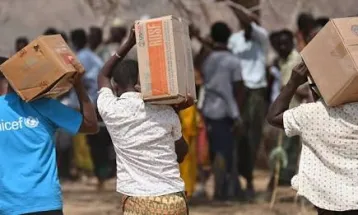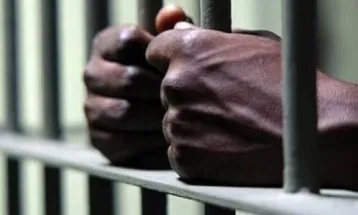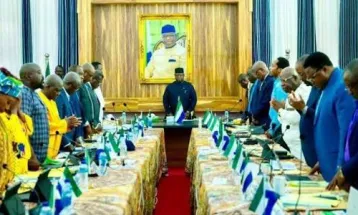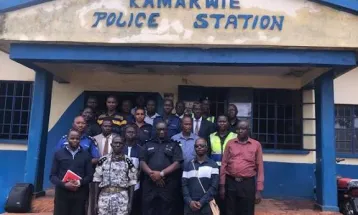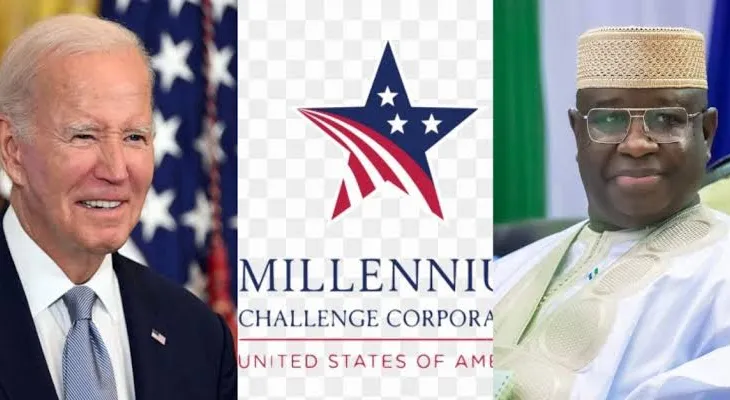
Sierra Leone's $481 Million Compact Program: A Catalyst Dependent on Electoral Reforms and Accountability
Recently, a delegation from the Government of Sierra Leone, led by the Honorable Minister of Finance, Mr. Sheku F. Bangura, successfully concluded technical negotiations with the Millennium Challenge Corporation (MCC) in Washington DC. This negotiation centered on the $481 million compact program aimed at fostering sustainable development within Sierra Leone, particularly in the energy sector. The implementation of this compact is poised to revolutionize the country's transmission and distribution energy network, thereby facilitating rapid economic growth in the medium to long term.
However, a significant caveat emerged from a tweet by the U.S Embassy in Sierra Leone. It underscored that the final approval of this transformative investment is contingent upon the outcome of the Electoral Review Committee's report and subsequent electoral reforms and accountability measures. This condition highlights the intertwined nature of economic development and political progress, emphasizing the importance of democratic principles and transparent governance.
The tweet from the U.S Embassy stated: "Final MCC and Congressional approval of this transformational investment in Sierra Leone’s energy sector now hinges on the report of the Electoral Review Committee and the implementation of resulting electoral reforms and accountability measures." It reaffirmed the commitment to fostering inclusive democracy and prosperity in Sierra Leone.
According to Sierra Leone's Ministry of Finance, the compact's fate will be determined by the board meeting scheduled for June 26, 2024. Following the board's approval, the compact will be submitted to the U.S Congress for ratification, with official signing expected between the Government of Sierra Leone and the MCC in the summer of 2024.
The delegation, comprising various government officials, including the Minister of State in the office of the Vice President, Madam Manty Tarawally, the Attorney General and Minister of Justice, Mohamed L. Tarawalie, and other key stakeholders, concluded the negotiations with a symbolic ceremony, marked by the cutting of a cake atop the MCC building in Washington DC.
The discussions surrounding the MCC compact have sparked diverse opinions within Sierra Leone, reflecting the country's democratic discourse. Some citizens express concerns about external influence on national policies, questioning the country's autonomy and sovereignty. Others view the compact as a potential catalyst for development, contingent upon the government's commitment to electoral integrity and governance reforms.
Amidst these debates, it is evident that Sierra Leone stands at a critical juncture, where the pursuit of economic prosperity intersects with the imperative of democratic consolidation. The outcome of the MCC compact negotiations underscores the interconnectedness of these domains, emphasizing the need for a holistic approach to national development.
As Sierra Leone navigates this complex terrain, it must balance the imperatives of economic growth with the principles of democratic governance, ensuring that progress is inclusive, sustainable, and aligned with the aspirations of its citizens. Ultimately, the success of the $481 million compact program hinges not only on technical negotiations but also on the country's commitment to electoral reforms and accountability—a testament to the intertwined nature of development and democracy in the 21st century.

